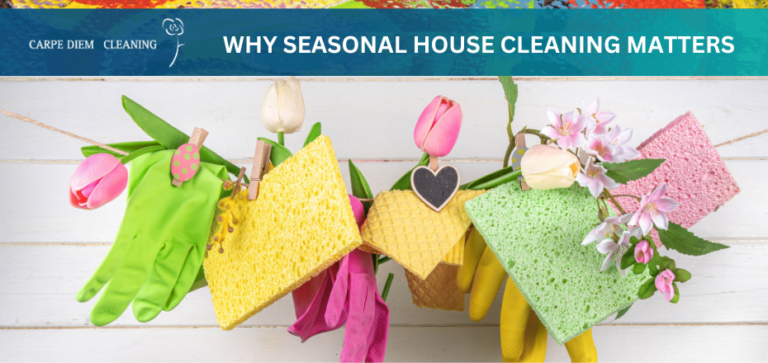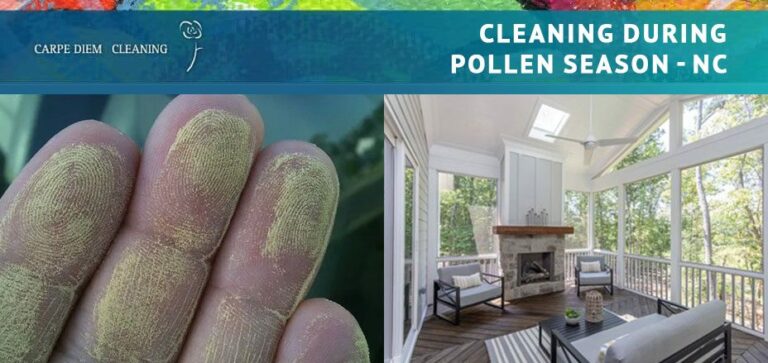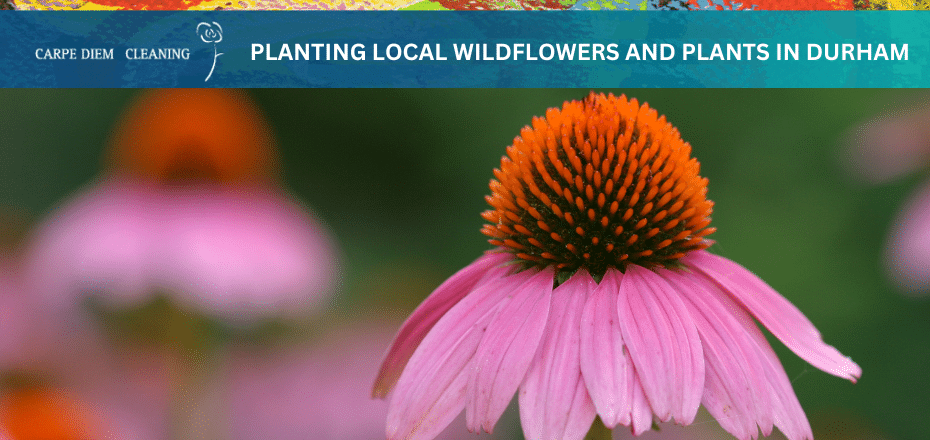
A Guide to Supporting Pollinators and the Environment
Durham is known for its vibrant culture, history, and a growing appreciation for the environment and sustainability. One of the easiest yet most impactful actions we can take to support our local ecosystem is planting native wildflowers and plants in our backyards or planter boxes.
Not only does this beautify our surroundings, but it provides crucial support for pollinators such as bees, butterflies, and hummingbirds, which play a vital role in our food supply and the health of our planet. In this blog, we’ve detailed the best native wildflowers to plant in The Triangle to support pollinators and why it’s important.
Why Pollinators Need Support?
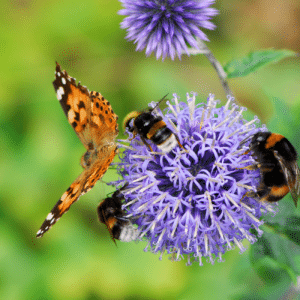 Pollinators are essential to producing many crops, supporting most of the world’s flowering plants and contributing to one-third of the global food supply. However, their populations face unprecedented declines due to habitat loss, pesticide use, and climate change. Planting native plants provides these vital species with the nourishment and shelter they desperately need.
Pollinators are essential to producing many crops, supporting most of the world’s flowering plants and contributing to one-third of the global food supply. However, their populations face unprecedented declines due to habitat loss, pesticide use, and climate change. Planting native plants provides these vital species with the nourishment and shelter they desperately need.
Unlike non-native varieties, local wildflowers and plants have evolved alongside these pollinators, creating a symbiotic relationship where plants supply pollinators with nectar and pollen. In return, pollinators aid in the plants’ reproduction through pollination.
Why Is It Important to Plant Native Plants & Flowers?
Growing native plants and flowers is crucial for several reasons. Firstly, they are adapted to the local climate and soil conditions, requiring less water and fewer pesticides than their non-native counterparts. This makes them more sustainable and supports local waterways by reducing chemical runoff. Additionally, native species offer the most nutritious resources to local wildlife, including pollinators, birds, and beneficial insects.
By cultivating these plants, we help maintain our region’s biodiversity, contributing to our ecosystems’ health. Furthermore, native plants are often more resilient to local pests and diseases, meaning they can thrive without the intensive care that might be needed for non-native species. Planting native fosters a harmonious landscape that supports and sustains our area’s natural web of life.
Local Wildflowers and Plants for Pollinator Support
If you’re wondering what the best native wildflowers and plants are to plant in The Triangle area, here are some of the best options.
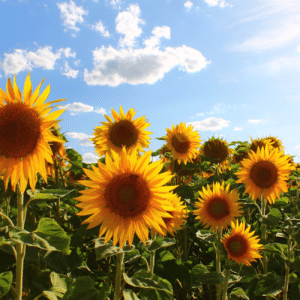 Sunflowers (Helianthus annuus): Sunflowers produce a high amount of pollen making them natural attractants for bees. Because of their large size, they also provide shelter to pollinators.
Sunflowers (Helianthus annuus): Sunflowers produce a high amount of pollen making them natural attractants for bees. Because of their large size, they also provide shelter to pollinators.- Coneflower (Echinacea spp.): These vibrant purple flowers are a beacon for bees and butterflies, offering them a plentiful nectar source.
- Black-eyed Susan (Rudbeckia hirta): With their golden petals and dark centers, these flowers provide both nectar and pollen, attracting various pollinators.
- Goldenrod (Solidago spp.): A late-blooming plant that supplies nectar when many other food sources are scarce.
- Beebalm (Monarda didyma): The brilliant red flowers are a favorite of hummingbirds and provide essential nectar.
- Aster (Symphyotrichum spp.): Offering late-season bloom, these flowers offer an additional nectar source for butterflies and bees during the fall.
- Hydrangea (Hydrangea spp.): Although not a nectar source, their foliage offers shelter and nesting sites for pollinators.
- Southern Magnolia Trees (Magnolia grandiflora): These majestic trees produce large, fragrant flowers that attract various pollinators, and birds favor their seeds.
Benefits to the Environment and Pollinators
Planting these local species is more than an act of gardening—it’s a contribution to a healthier, more biodiverse environment. The chosen plants serve as rich sources of pollen and nectar, fill gaps in seasonal food supplies, offer shelter, and promote the overall well-being of our pollinator populations. In doing so, they support the biodiversity crucial for a balanced ecosystem in and around Durham.
Planting Guide for Durham Residents
To achieve a pollinator-friendly garden, follow these simple planting tips:
- Location and Sunlight: Most wildflowers and plants thrive in areas that receive at least 6 hours of direct sunlight daily. Choose a spot in your garden or place your planter boxes accordingly.
- Soil Preparation: Ensure the soil is fertile and well-draining. If necessary, amend it with organic matter to improve soil health and nutrient content.
- Planting Time: For coneflowers, black-eyed susans, beebalm, and asters, planting in spring after the last frost is ideal. Goldenrod can be planted in late spring or early summer.
- Watering and Care: To establish a strong root system, water the plants consistently, especially during their first growing season. A slow-release fertilizer in early spring can promote healthy growth without overwhelming the plants.
Plan for Blooms All Year Long
Planning your garden to ensure something blooms in each season is not just aesthetically pleasing—it’s a strategic approach to supporting local wildlife and promoting biodiversity. Seasonal blooms provide a continuous food supply for pollinators like bees, butterflies, and birds, who rely on nectar and pollen for survival.
In spring, early bloomers like crocus and daffodils offer the first food sources after a long winter, while summer flowers such as coneflowers and black-eyed Susans attract various pollinators. Fall bloomers like goldenrods and asters provide critical sustenance for insects preparing for winter, and even in winter, certain plants and shrubs can offer shelter and food remnants for resident wildlife.
Beyond supporting wildlife, a garden with year-round blooms ensures that your outdoor space remains vibrant and engaging throughout the year. This continuous display of color and life enhances the garden’s beauty and can significantly increase the enjoyment and therapeutic benefits it provides. It also offers an educational opportunity for gardeners to learn about different plant species and their bloom cycles, deepening their connection with the natural world.
Additionally, planning for seasonal blooms encourages gardeners to diversify their plant selections. This diversity contributes to a more visually appealing garden and promotes a healthier ecosystem by reducing susceptibility to pests and diseases, which tend to affect monocultures more severely. A varied garden encourages a balanced predator-prey relationship and fosters a more resilient local environment.
Thoughtfully planning your garden to include species that bloom at different times of the year benefits the environment, local wildlife, and the gardeners themselves. It creates a lively garden that serves as a pollinator refuge and a year-round oasis for its caretakers, contributing to ecological health and personal well-being.
A Clean & Beautiful Future
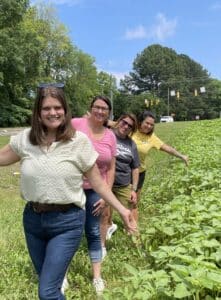 Carpe Diem Cleaning is a firm believer in planting native flowers and pollinators. In fact, to celebrate our 30 years in business, we participated in North Carolina’s DOT Wildflower Project, which was first initiated in 1985. You can learn more about the program and our involvement here. Together, through mindful gardening practices, we can make Durham, NC, a sanctuary for pollinators and an example of how communities can work hand in hand with nature for a better future.
Carpe Diem Cleaning is a firm believer in planting native flowers and pollinators. In fact, to celebrate our 30 years in business, we participated in North Carolina’s DOT Wildflower Project, which was first initiated in 1985. You can learn more about the program and our involvement here. Together, through mindful gardening practices, we can make Durham, NC, a sanctuary for pollinators and an example of how communities can work hand in hand with nature for a better future.
If you’re ready to free up your weekends this summer to enjoy time in your garden or see local wildflowers, we’re here to support you. Request a free quote today for our home cleaning services so you can have more time for yourself.
We proudly offer services to Durham, Raleigh, Cary, Apex, Chapel Hill, Brier Creek, and the surrounding area. We’re reliable, responsive, and we do things right. Trust Carpe Diem Cleaning to clean your home.


